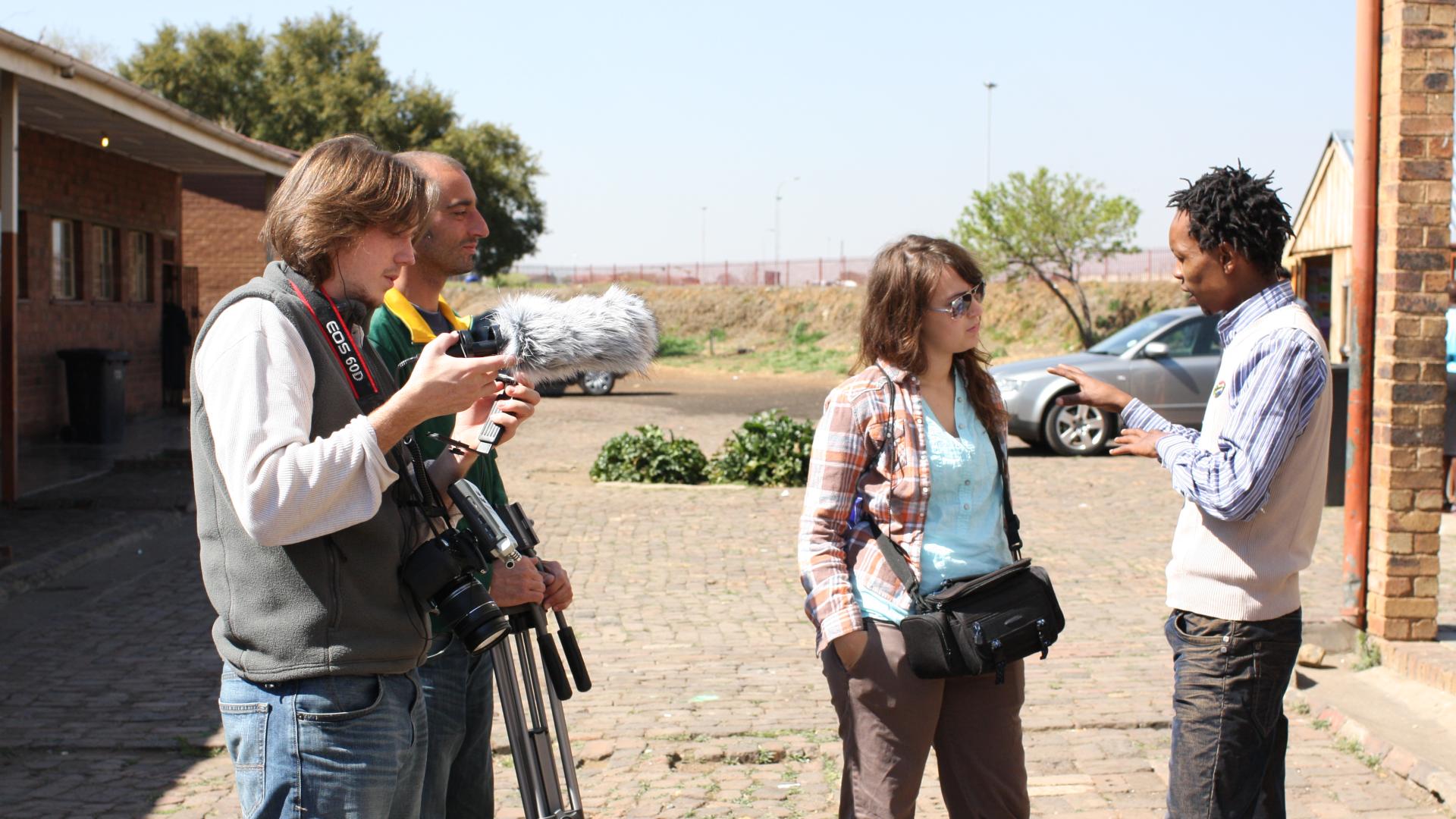Meet Julie Ficarra, a new associate professor of the practice in Global Development. Julie leads engaged learning efforts for undergraduate students as she works to promote equitable cross-cultural partnerships and challenge structures of inequality. We sat down with Julie to learn more about her background in international education and what excites her about this role and the launch of the new global development major.
Get to know Julie:
- Academic focus: International education, engaged learning, partnership development and critical pedagogy
- Previous position: Associate Director of Study Abroad, Office of International Programs, State University of New York, College at Cortland
- Academic background: Ph.D. Cultural Foundations of Education, Syracuse University; Ed.M. International Education Policy, Harvard University; B.A. Cultural Anthropology and International Studies, University at Buffalo
You bring exciting expertise to Global Development on building equitable relationships between universities, students and communities. How do you confront power dynamics and inequalities that have historically been a part of study abroad programs?
Acknowledging those power dynamics is an important first step. My dissertation work questioned the assumption that mutual, cross-cultural exchange is an outcome of study abroad programs. I tried to draw attention to the disconnect between how we talk about engaged learning abroad as being mutually beneficial and the way that we study or assess these programs — with inquiry almost exclusively focused on student outcomes. Recognizing that issues of race, gender, class, nationality, language, and age permeate interactions between students or any visitor and hosts helps us to think differently about how we can prepare students to engage ethically, and with cultural humility, in communities around the globe.
In your new role, you’ll be expanding Global Development’s engaged learning partnerships with public, community and private partners. What are you looking forward to the most in this opportunity?
So many things! But I think I’m most excited by the task of not only increasing the breadth of engaged learning partnerships but the depth of these collaborations. Intentionally structuring opportunities for mutual, cross-cultural exchange between partners can take development in new, transformative directions. I’m interested in utilizing my expertise in host community impact to monitor and evaluate engaged learning partnerships that optimize outcomes for students, faculty and staff as well as community partners. What I also see as really exciting about engaged learning in the Department of Global Development is the opportunity to develop courses to help prepare students for their engaged learning experiences by guiding them through understanding who they are, who their host communities are, and what we can be together. Students want to be a part of something transformative and enduring in the world, and our engaged learning partnerships can deliver on that promise in tangible ways.
Photos from the field
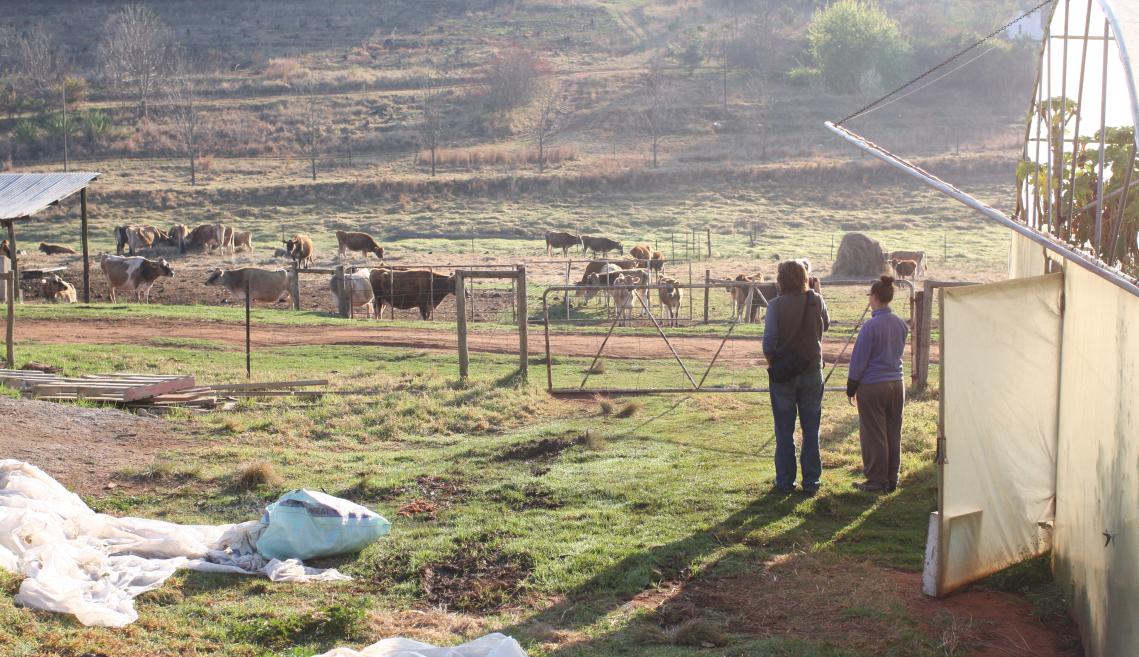


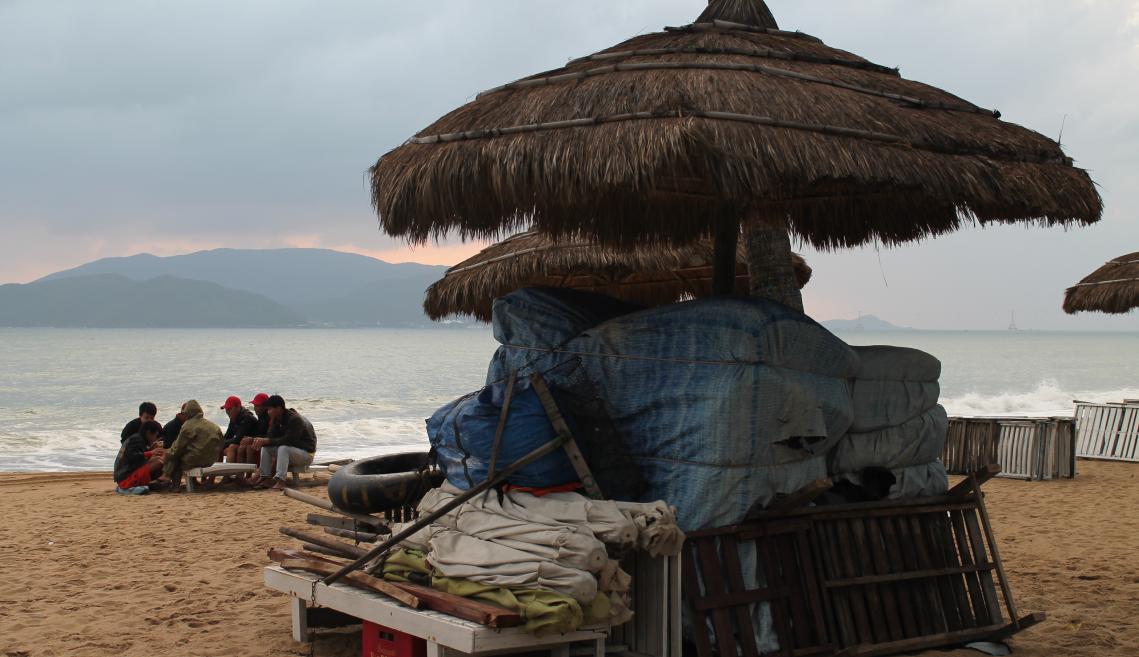
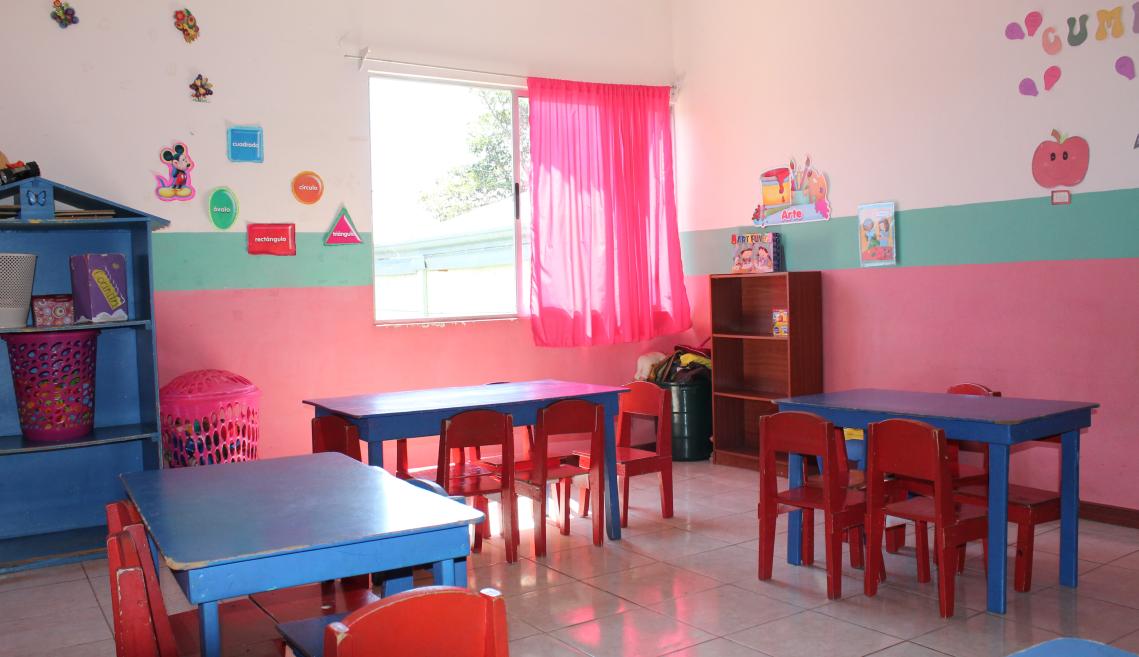
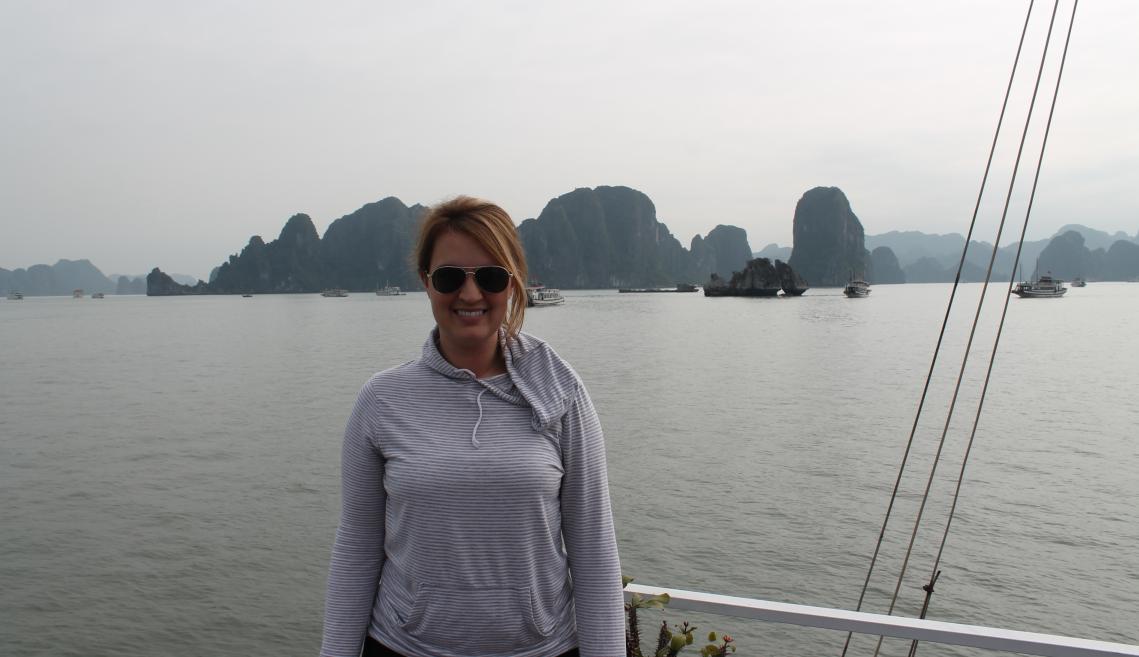
The Pasture Valley Farm & Children's Home in Nhlangano, eSwatini was included in the African stories of resilience documentary film series that Julie worked on while at the U.S. Embassy in eSwatini.
Julie Ficarra travels to Bulgaria where she would later develop a partnership between her International Education course at Syracuse University & students at the American College of Sofia in Bulgaria.
Julie Ficarra learns from the director of a nursery school in Soweto, South Africa.
The beaches of Nha Trang, Vietnam where Julie was studying how U.S. Americans navigate conversations about the Vietnam war (and it's aftermath) during short-term study abroad programs.
In San Jose, Costa Rica, Julie conducted a study of how white pre-service teachers from the U.S. make meaning of cultural and linguistic difference during a short-term service learning program.
Sunset in Ha Long Bay, Vietnam.
What would you like people to know about your field?
Maybe what it is for starters – my Ph.D. is in Cultural Foundations of Education. This field centers around questions of power and how unequal relations of power impact learning and collaboration in all kinds of settings, and at individual and systemic levels. I draw on my training in cultural anthropology and international education policy analysis to apply critical theories to the naming and understanding of challenges and opportunities in the practice of educational collaborations that bring people together across racial, cultural, and linguistic difference. So, in terms of preparing students in the practice of global development, I see myself contributing to furthering students understanding of the cross-cultural contexts in which they’ll work.
What do you like to do when you aren’t working?
What do I like to do? Travel! Wander around towns and cities that I’ve never been to, have chance encounters with interesting people, go to farmers markets, stay at B&Bs, drink coffee, listen to bluegrass music, play tennis, watch historical biopics…What do I actually do when I’m not working? Chase my one- and three-year-old sons around the house, pick up the toys left in their wake, cut peanut butter and jelly sandwiches into dinosaur shapes, and listen to more Pink Fong than anyone ever should.
Three adjectives people use to describe you:
Borrowing from Tess Pendergrast’s strategy, I asked my husband this question… his response: curious, compassionate, and empathetic. I’ll take it!
If you had unlimited grant funding, what major problem in your field would you want to solve?
It’s well established in the field of international education that bilateral exchange relationships are an ideal model for increasing mutual understanding and cross-cultural exchange; but, economic realities often preclude equal participation from students and faculty in the Global South (and elsewhere). With unlimited grant funding, I would transform existing study abroad models to include more opportunities for bilateral exchange, create U.S.-based service-learning programs that would bring students from outside the U.S. to local communities to work on development projects here (as has been going on in the opposite direction for decades), and also accelerate research efforts to better understand how to increase diversity, equity, and inclusion in engaged learning abroad.
In Global Development, you’ll be supporting students through a “global” lens — which signifies here within our local communities and across international borders. Where do you see the value in being exposed to development work in our own backyard and on an international scale?
As the granddaughter of immigrants who came to Syracuse, New York in search of opportunity, I feel personally invested in identifying and addressing issues of inequality in Upstate New York. The comparative perspective that students can gain from looking at how a particular development problem manifests in local and international contexts helps them to uncover complexities that are necessary to understand so that they can best work towards developing solutions.
Researcher spotlight
Julie Ficarra
Learn more about Julie’s research and background in international education, engaged learning, partnership development and critical pedagogy.

Keep Exploring
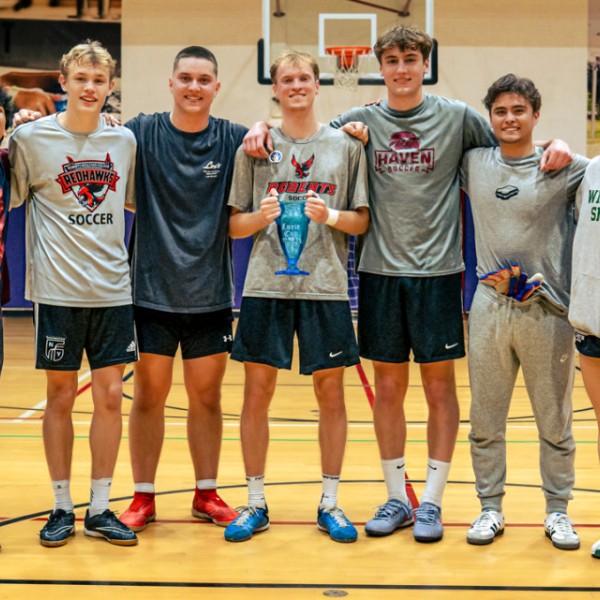
News
Rohan Amin's Lurie Cup soccer tournament brings people together from Cornell and around New York state to support the pediatric hospital that saved his life.
- Global Development

News
Communities tracked by AARP's Livability Index made progress becoming more age friendly, but housing affordability and health care access remain challenges.
- Global Development

We openly share valuable knowledge.
Sign up for more insights, discoveries and solutions.


